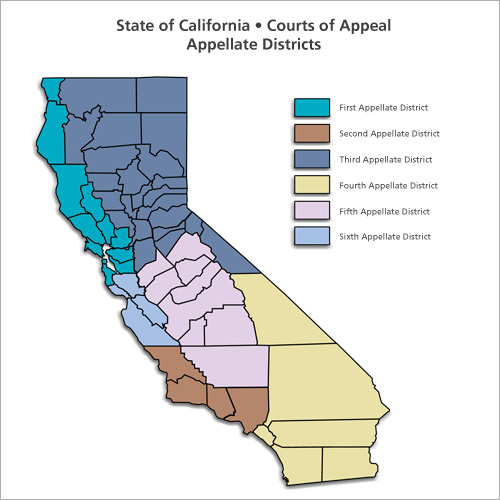In the excitement to “tell their story” in a complaint, pro se litigants and even attorneys often fail to screen for SLAPPable matter in a complaint, which can lead to very expensive mandatory attorneys’ fees and costs if a defendant prevails on an anti-SLAPP motion aka special motion to strike under Code of Civil Procedure § 425.16.
CCP § 425.16, subd. (b)(1) provides that “[a] cause of action against a person arising from any act of that person in furtherance of the person’s right of petition or free speech under the United States Constitution or the California Constitution in connection with a public issue shall be subject to a special motion to strike, unless the court determines that the plaintiff has established that there is a probability that the plaintiff will prevail on the claim.”
Once an anti-SLAPP motion is filed, the complaint cannot be amended (Simmons v. Allstate (2001) 92 Cal.App.4th 1068, 1073-1074), nor can the action be dismissed and re-filed. (Liu v. Moore (1999) 69 Cal.App.4th 745, 749-752.) Once a complaint is filed and served, Plaintiff is stuck with it for anti-SLAPP purposes. Defendants prevailing on a SLAPP motion (including any subsequent SLAPP appeal) are entitled to a mandatory award of reasonable attorney’s fees and costs. But a plaintiff who successfully opposes an anti-SLAPP motion is not entitled to any attorney’s fees or costs, unless it can show that the motion was frivolous.
To illustrate, consider a hypothetical situation involving online/cyber defamation:
A breach of contract dispute arose between two companies specializing in online marketing. Defendant company’s president failed to file a timely responsive pleading. Plaintiff took the president’s default, which was never vacated because the case was stayed and transferred to a different state under a forum selection clause. Plaintiff then created multiple web pages showing the case docket and highlighting the entry of default against the Defendant company’s president. Plaintiff even registered domain names bearing Defendant company’s name in order to further direct the public to information about the parties’ lawsuit. Plaintiff also used its SEO and online marketing skills to ensure that anyone searching online for Defendant company or its president would find the web pages created by Plaintiff showcasing the lawsuit and the president’s default. Clearly, Plaintiff is trying to deter anyone from hiring or contracting with Defendant company.
Defendant wants to file a lawsuit to force Plaintiff to remove the web pages. But the webpages essentially draw public attention to the lawsuit’s docket, which is a public record. The complaint filed to force the removal of the websites is a potential minefield of SLAPPable matter.
In Collier v. Harris (August 5, 2015) _ Cal.App.4th _ , 2015 WL 5121082, a case with similar facts, Defendant registered plaintiff’s name, and the name of an advocacy group she formed as domain names, and then redirected all Internet users who visited those Web sites to the Web sites for the school board candidates defendant supported. Plaintiff sued, alleging defendant registered the domain names and illegally used them to mislead the public into thinking plaintiff supported defendant’s candidates. The Court of Appeal found that registering the domain names of a school board candidate and redirecting Internet users to the other Web sites assisted defendant in exercising his free speech rights because those acts provided him with additional forums to reach the public with information about the school board candidates. See also the unpublished case of Ocean’s Eleven Casino v. Anders, 2014 WL 1864487 (Cal. Ct. App. May 9, 2014), in which the Court of Appeal held that a gripe website qualified as a public forum. So even when conduct seems clearly “wrong”, such as registering domain names in your company’s name, there still exists a great risk of including SLAPPable matter in a complaint.
Here is a list of common causes of action that often indicate the presence of potentially SLAPPable matter:
- Defamation
- False light
- Invasion of privacy
- Malicious prosecution or abuse of process
- Intentional or negligent infliction of emotional distress regarding statements made to the plaintiff (e.g., verbal abuse)
- Interference with economic advantage
However, even a simple breach of contract or declaratory relief action may be a SLAPP suit. (See, e.g., Navellier v. Sletten (2002) 29 Cal.4th 82; Equilon Enterprises LLP v. Consumer Cause, Inc. (2002) 29 Cal.4th 53.)
Therefore it is critical that plaintiffs identify any and all anti-SLAPP issues prior to filing the complaint. To avoid malpractice suits, Plaintiffs’ attorneys should inform their clients of all potential SLAPPable matter in the complaint, advise the client of the risks and expenses associated with anti-SLAPP motions, and advise that supporting evidence needs to be produced up front.
If a defendant does file an anti-SLAPP motion, plaintiff must take it extremely seriously and be prepared to conduct discovery in order to marshal evidence that: (1) the claims do not arise from protected activity; (2) plaintiff has a probability of prevailing on its claims; (3) at minimum, that plaintiff can raise a triable issue of fact as to each of its claims. (See CCP § 425.16, subd. (g).)
An experienced freelance attorney can help you draft or screen your complaint for SLAPPable matter. Losing an anti-SLAPP motion subjects the plaintiff to mandatory attorney fees and costs and exposes plaintiff’s attorney to a potential malpractice suit.







